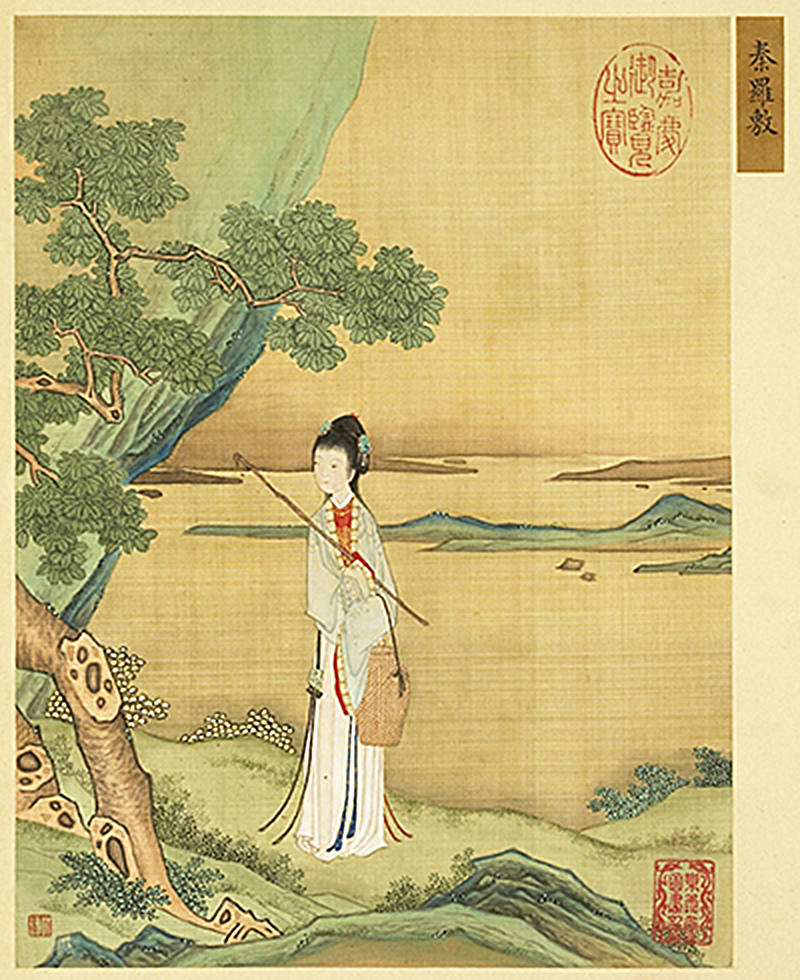A poor girl sews golden threads into silk gowns for other girls. But she bitterly hates that her diligence and hard-work do not pay off for her.
貧女
蓬門未識綺羅香,擬託良媒益自傷
誰愛風流高格調,共憐時世儉梳妝
敢將十指誇針巧,不把雙眉鬥畫長
苦恨年年壓金線,為他人作嫁衣裳秦 韜 玉
Poor Girl
Behind a grass door, she never wears fine clothes,
She longs to marry, but would dare to help this poor girl?
She asks herself, who could love her simple face and ways,
When frugal dress and simple makeup are only pitied?She could boast of fingers that embroider beyond compare,
But she cannot compete with painted brows,
So, year after year, she hates, she sews with golden thread,
Bridal gowns for other girls.Qin Taoyu, c. 835 A.D., Fall of the Tang dynasty
Notes on translation.
First line, verse — Péngmén wèi shí qǐluó xiāng, 蓬門未識綺羅香. Péngmén, a grass door, indicating a poor cottage. Qǐluó, fine silks or beautiful clothes.
First line, second verse — Nǐ tuō liáng méi yì zì shāng, 擬託良媒益自傷. Liáng méi refers to a good matchmaker, the idea being a good matchmaker could do no good.
Last line, first verse — Kǔhèn nián nián yā jīn xiàn, 苦恨年年壓金線. Kǔhèn, a bitter hatred.
Last line, last verse — Wèi tārén zuò jià yīshang, 為他人作嫁衣裳. Make someone else’s trousseau.












